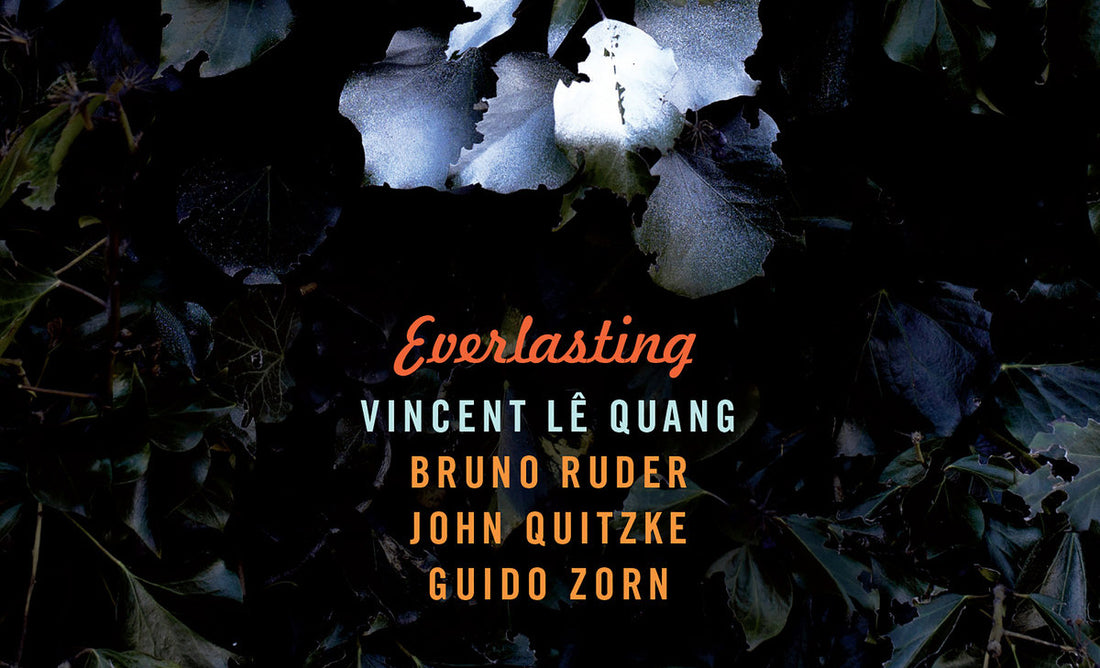Everlasting, Vincent Lê Quang's new album

Trained at the CNSM in Paris, where he now teaches generative improvisation, Vincent Lê Quang was noticed very early by Daniel Humair, with whom he has recorded numerous albums. In 2003, he won the prize for best soloist and best group at the Concours national de jazz de la Défense (for his duo with Vincent Peirani). He also collaborates with Aldo Romano and is a member of Henri Texier's quintet.
In 2011, he signs in trio with the singer Jeanne Added and the pianist Bruno Ruder, Yes is a Pleasant Country - around poems by Cummings, Yeats and Celan - nominated at the Victoires du Jazz and distinguished by the Académie Charles Cros.
He continues to explore and affirm a poetic jazz with this first album as a leader, surrounded by the faithful Bruno Ruder (piano), Joe Quitzke (drums) and Guido Zorn (bass), with whom he has been playing for a dozen years.
"The music that takes place there can only be created with these four people, especially through our mutual understanding and common will to reconcile writing with real-time invention that is improvisation. The repertoire is like a backbone that we use to write music in the present - each composition is a key that allows us to put ourselves in a common state, requiring above all that we be well connected" explains Vincent Lê Quang.
While he has long devoted himself to the soprano alone, under the influence of Steve Lacy, whose concerts he has vivid memories of, the artist has recently taken up the tenor saxophone. "I felt that this quartet, in particular, called me into a sound that I didn't have with the soprano alone. I wanted to play on the soprano-tenor ambiguity, inspired by Garbarek, where the two instruments are continuous".
Lament of a dreamed Orient, Mitteleuropa harmonies, swing of a chosen America: if jazz is a crossbreeding, it resounds on Everlasting of the improbable accents which bathe the composer's universe of Vincent Lê Quang.
"Vincent Lê Quang is totally committed to the music, and yet the musical verve does not stifle his thought: it is of an undeniable density (...) The cohesion of the group forces one to admire (...) an open music, non-descriptive but with a very strong power of evocation." Xavier Prévost, Jazz Magazine